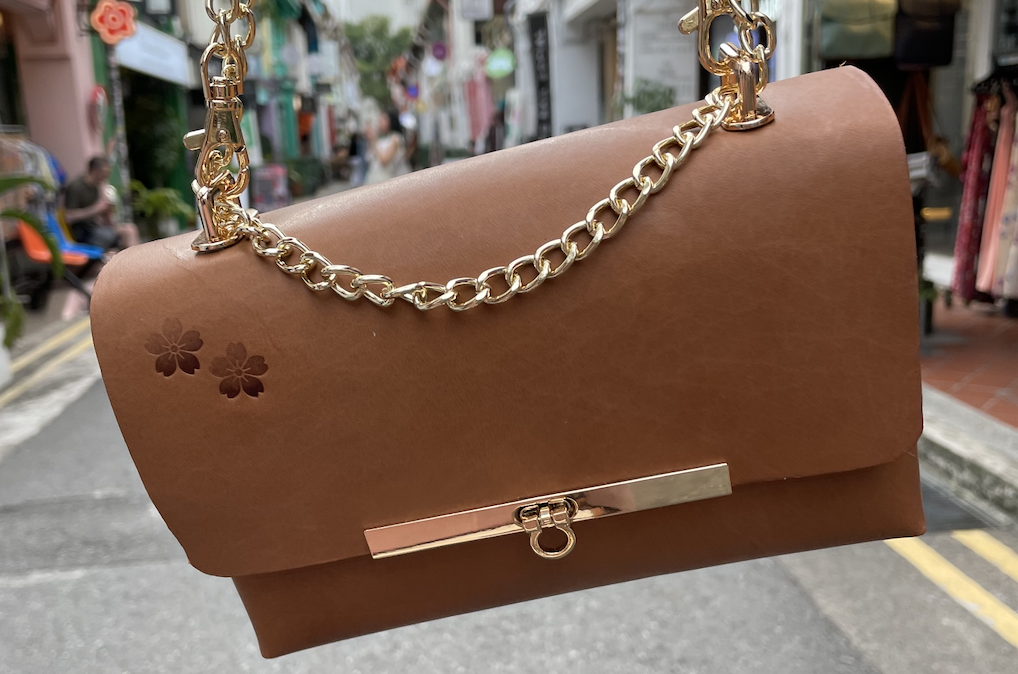
Last week, I signed up for a leather bag workshop via Pelago which is conducted by Crafune. It was probably one of those unique workshops which I have not tried in Singapore. The experience was mostly fun and interesting but was dampened by the service provided by their staff. Nevertheless, it was quite an experience making a leather bag from scratch even though there was not much workmanship involved. And if you happen to come across this article while searching for this leather workshop, I hope the information will help you understand the process better. And Crafune, if you are reading this, I really think it is a pity that the workshop is not run by an experienced leather craftsman.
The Melanie Handbag Workshop
Crafune is located along Haji Lane and it is not too difficult to spot it. It’s located along the vibrant street among the other quirky shops and cafes. You will need to climb a flight of stairs to enter their workshop. Their workshop comprises of 2-stories. The moment you step in, you will immediately smell the strong chemical smell of the glue that they used. Some of the staff will be busy working on the leather, making commissioned goods while a couple of them will facilitate the workshop. The place looks rather cluttered but I guess they are still able to get things done.
On the website, it stated that the duration of the workshop is around 3 hours but in actual fact, it took us around 2 hours to complete the bag. The costs of the workshop work out to be around $119 per person and you can enjoy some discounts if you book via Pelago.
Choosing the leather
Sadly, there wasn’t any proper introduction to the workshop or any sharing of the leather basics by the instructor who was probably a student. We went straight into the leather selection. There are 2 types of leather in several colors to choose from. The leather is made of buffalo skin and it is vegetable tanned.

Scoring and Cutting the leather
Before we cut the leather, we have to score the leather using an awl and some paperweights. We were given this cut-out template to mark out the outline on the leather. The design of the bag was pretty simple so the whole process was manageable and isn’t too complex for beginners like us.
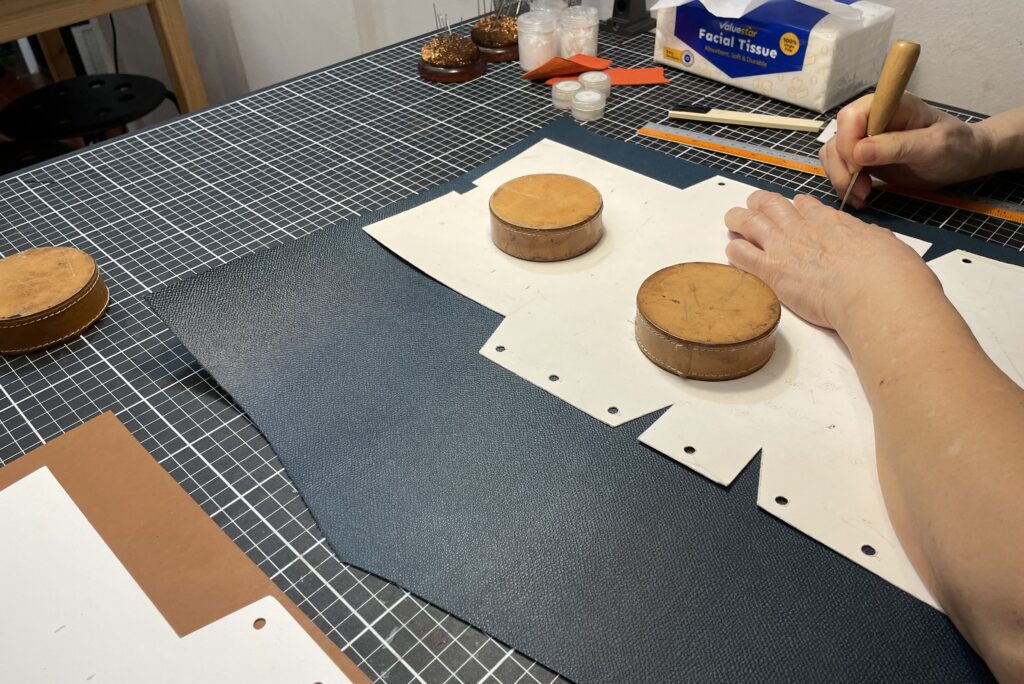
After scoring the leather, we cut out the leather using a penknife. This step seems simple but it is not as easy because you need to ensure that the cuts are clean and mistakes can happen if you are not experienced enough in cutting leather.
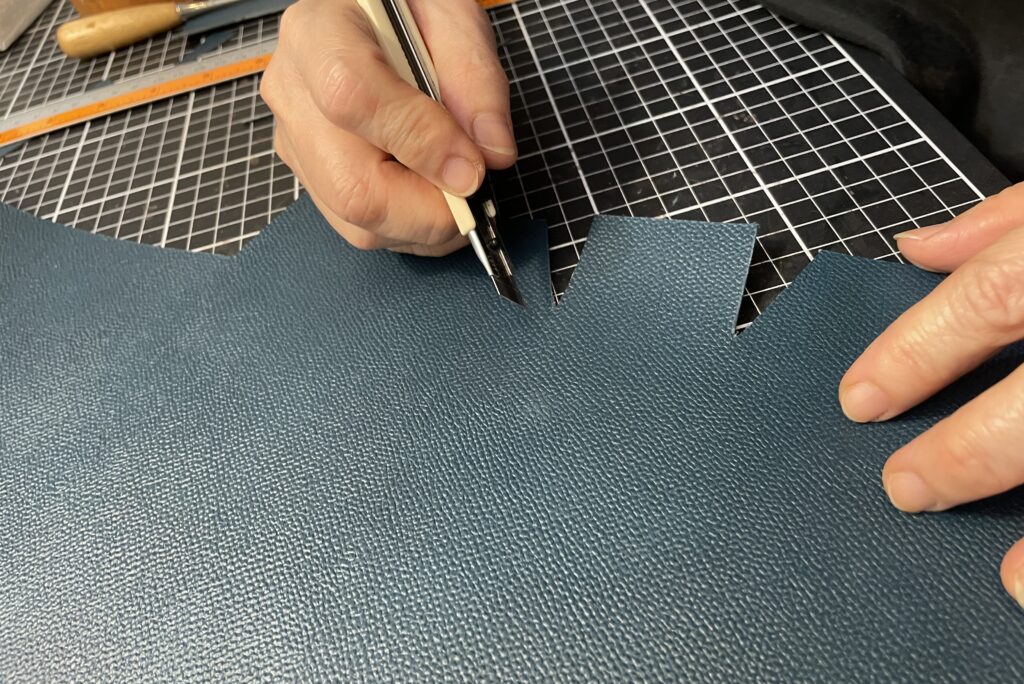
Monogramming
What is really cool about this workshop is that they allow us to emboss our initials on the bag to make it truly our own. We wrote down our initials on a slip of paper. The monogramming was done using a hot foil stamping machine which is operated by the trainer. They use a gold foil to emboss our initials on the leather and it turns out really nice.
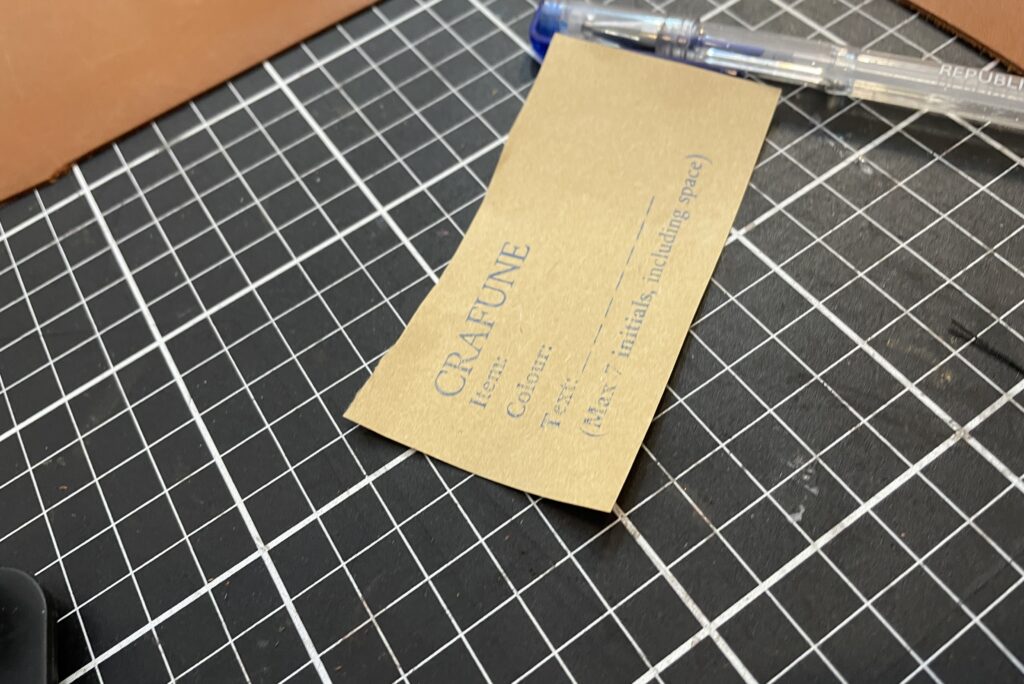
High-end bag brands like Coach also has this complimentary monogramming service where you can emboss your initials on your Coach bag tags.

Sandpapering the edges and punching holes
To smoothen the edges of the leather, we had to sandpaper it and then we used rotary hole punch pliers to punch holes into the leather. Instead of stitching the sides together, we used nails and rivets to fasten the flaps together. It’s an easier and quicker way of assembling a bag.
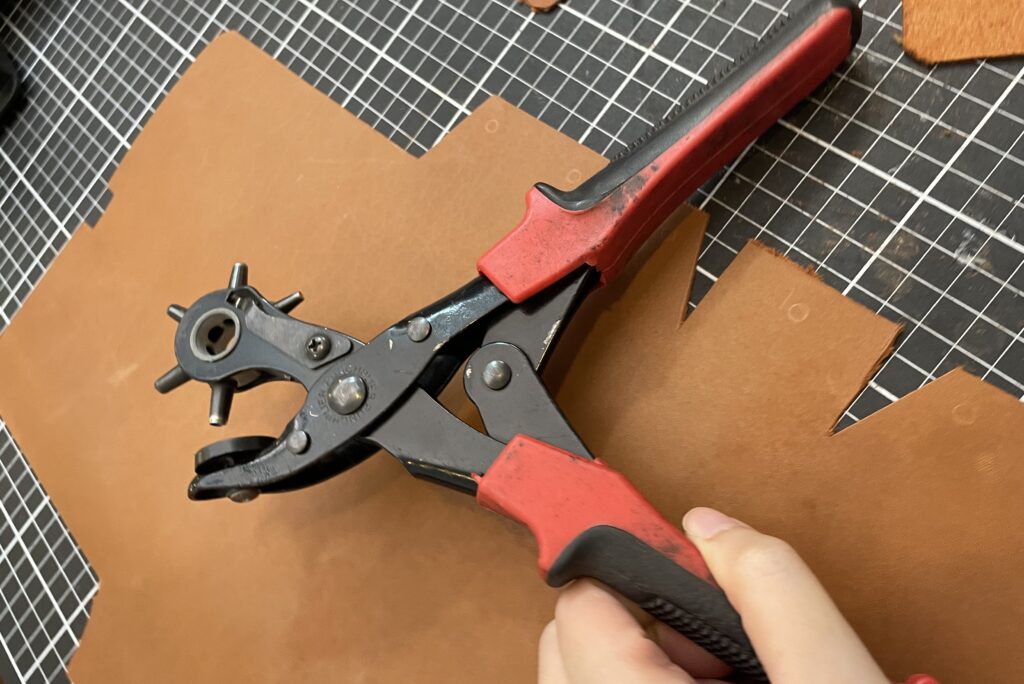
Burnishing the edges of the leather
To give the leather edges a slick and glossy look, we apply this burnishing gum. It’s a form of wax that will coat the edges of the leather to give it that glossy finish. We apply the gum using our fingers and rub it across the edges and then use a hand burnisher to polish the edges.
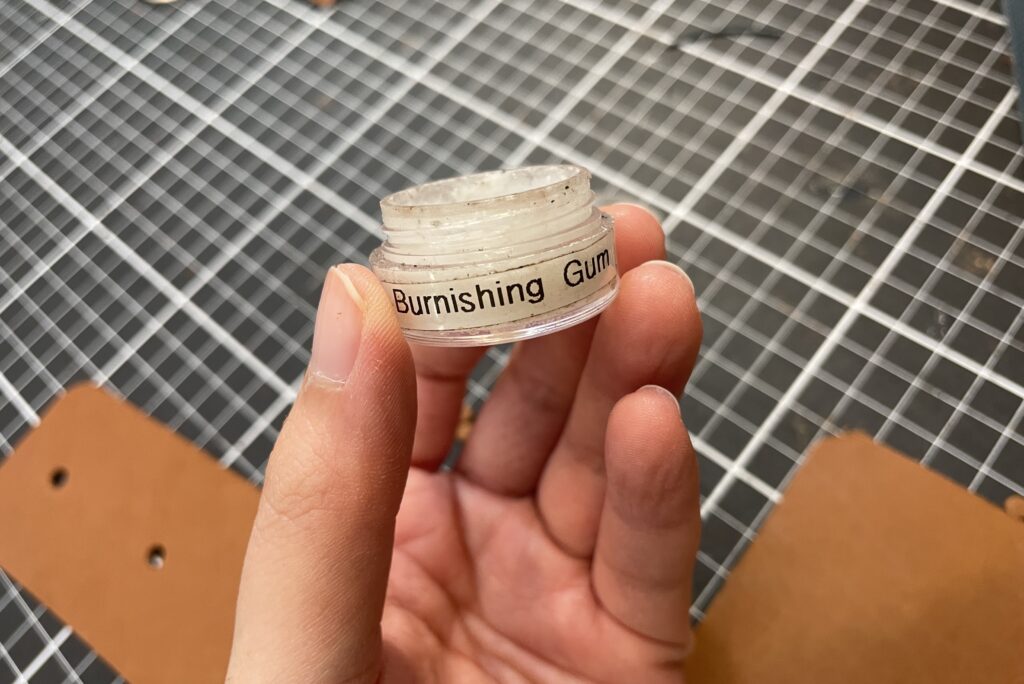
Assembling the bag
After burnishing the leather, we start to fold the leather into the shape of a bag and use metal rivets to hold the bag flaps in place.
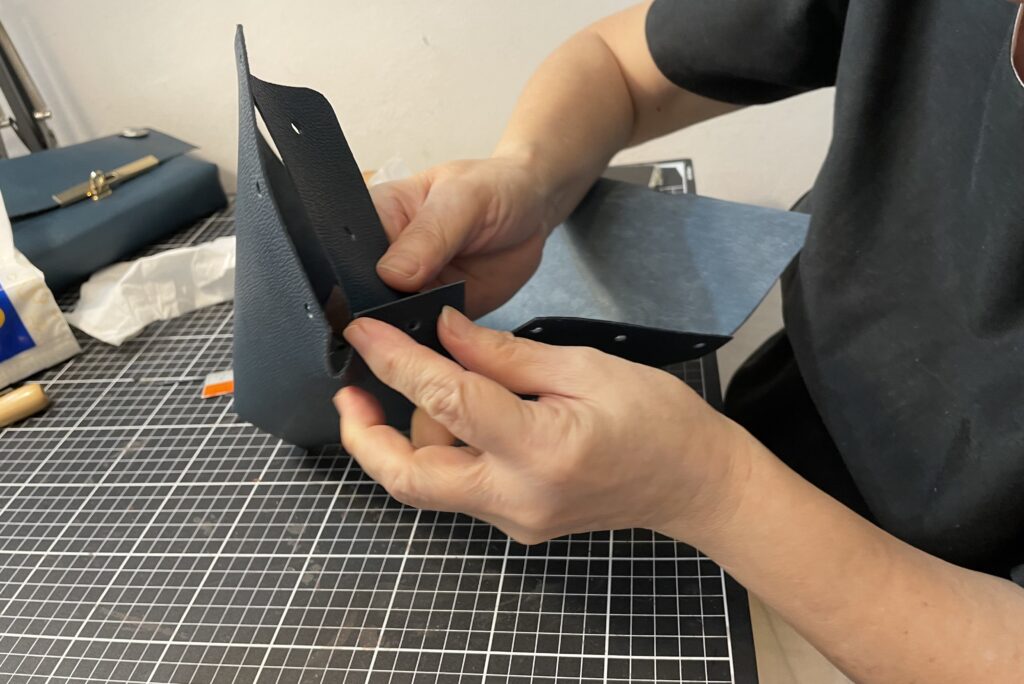
We also insert hooks and fixed a metal bag clasps on the front panel of the bag. The trainer helps us to apply some superglue on the screws to reinforce them.

And this is the final look of the bag! We can further embellish the bag by emobssing motiffs on it if we like. To add uniqueness to the bag, I embossed two sakura motifs on the bag.
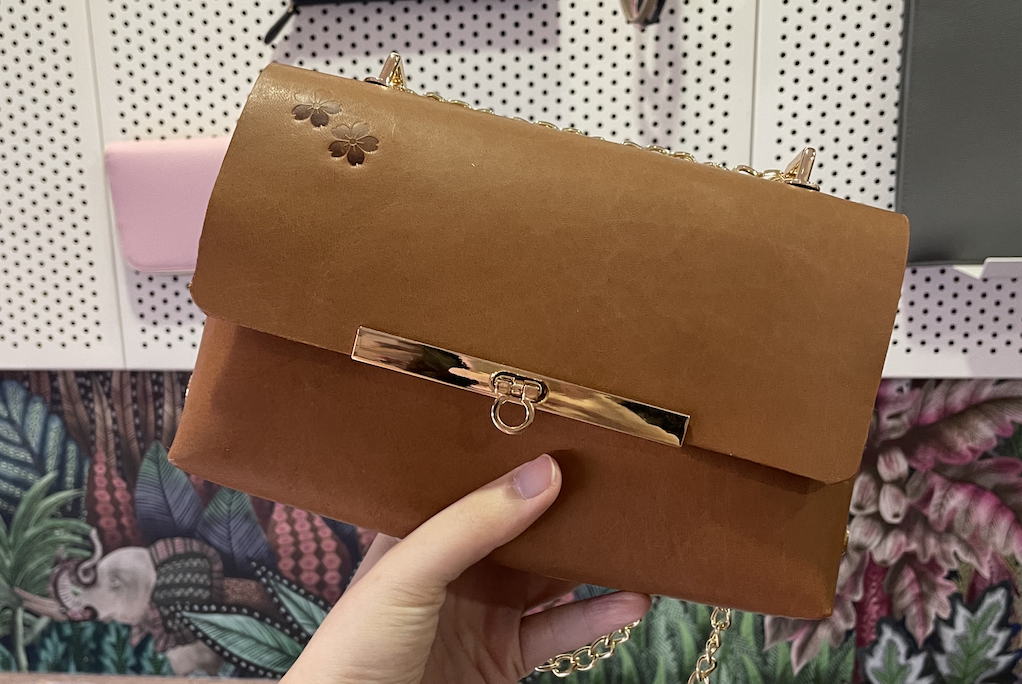
Overall, the leather bag-making process was fun because it’s hands-on and you get to bring something back home. It’s also manageable and simple to do. But it could be made a lot more memorable if we were taught some leather basics.
Check out my other articles on fashion here.





